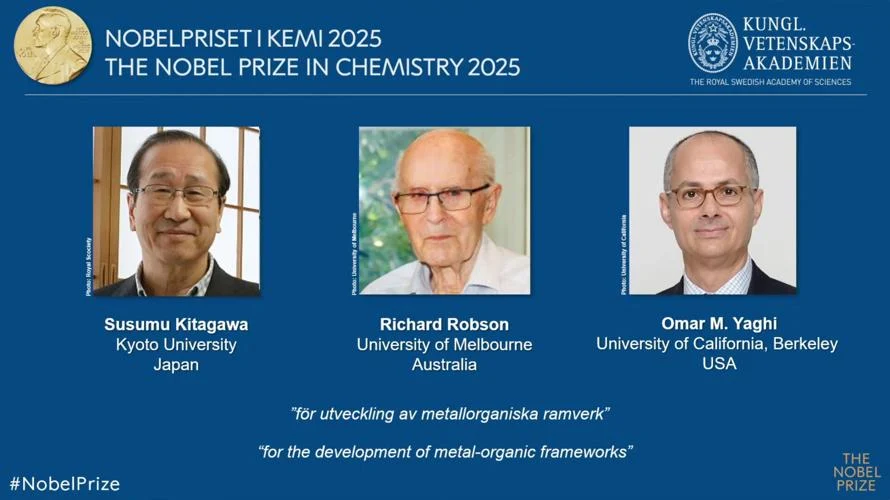hree scientists — Susumu Kitagawa, Richard Robson, and Omar Yaghi — have been awarded the 2025 Nobel Prize in Chemistry for their pioneering work on Metal-Organic Frameworks (MOFs), a breakthrough molecular architecture transforming science and sustainability.
Announced Wednesday in Stockholm, Sweden, the Nobel Committee compared the material’s extraordinary capacity to Hermione Granger’s “magically enlarged handbag” from Harry Potter, as MOFs can pack vast internal spaces within tiny materials.
Heiner Linke, chair of the chemistry committee, explained that these frameworks can “store huge amounts of gas in a tiny volume,” likening them to a “hotel” for molecules. The materials have remarkable applications — from capturing carbon dioxide and harvesting water from desert air to catalyzing reactions and neutralizing toxic gases.
Richard Robson, from the University of Melbourne, first conceptualized the idea in the 1970s. Susumu Kitagawa of Kyoto University expanded the research in the 1990s, while Omar Yaghi of the University of California, Berkeley, later developed MOF-5 — a highly stable structure that can withstand extreme heat.

Experts note that one gram of MOF can possess an internal surface area equivalent to a football pitch, enabling vast environmental applications. These include removing “forever chemicals” from water, storing gases, and extracting water vapor in arid regions.
The 2025 Nobel Prize carries a reward of 11 million Swedish kronor (approximately $1 million).







that’s good